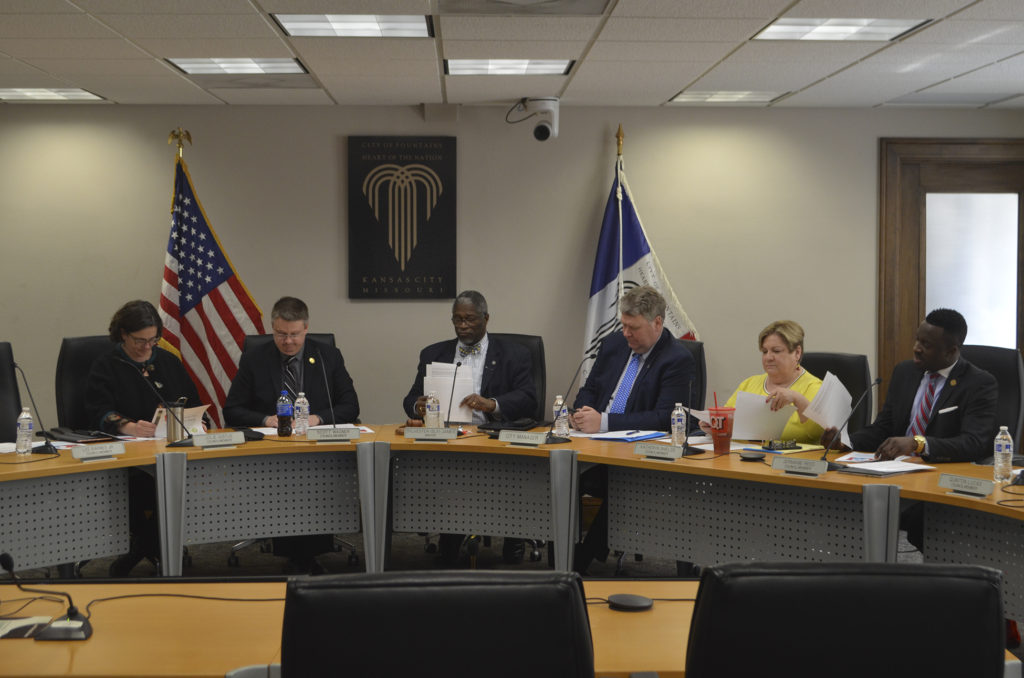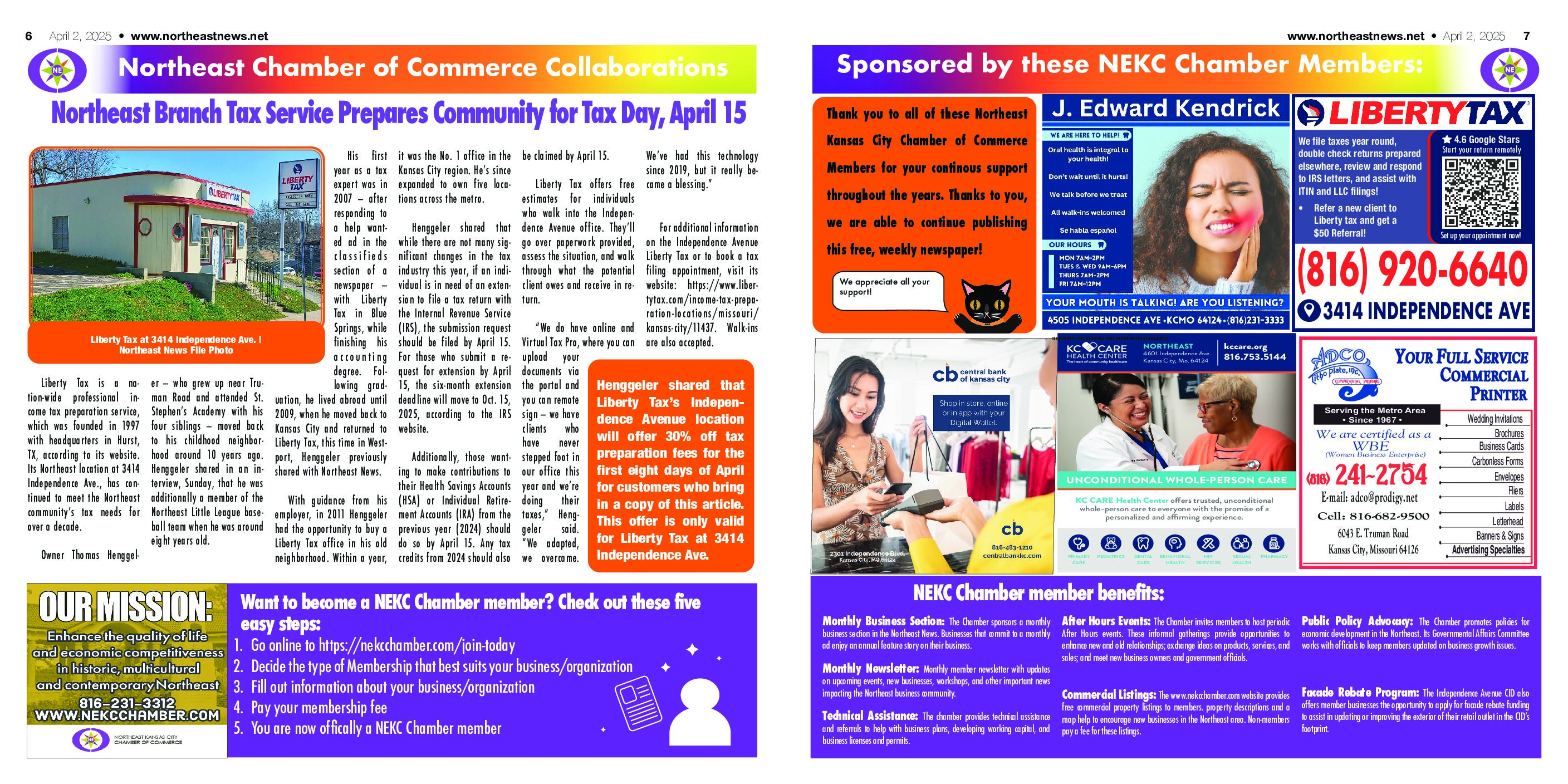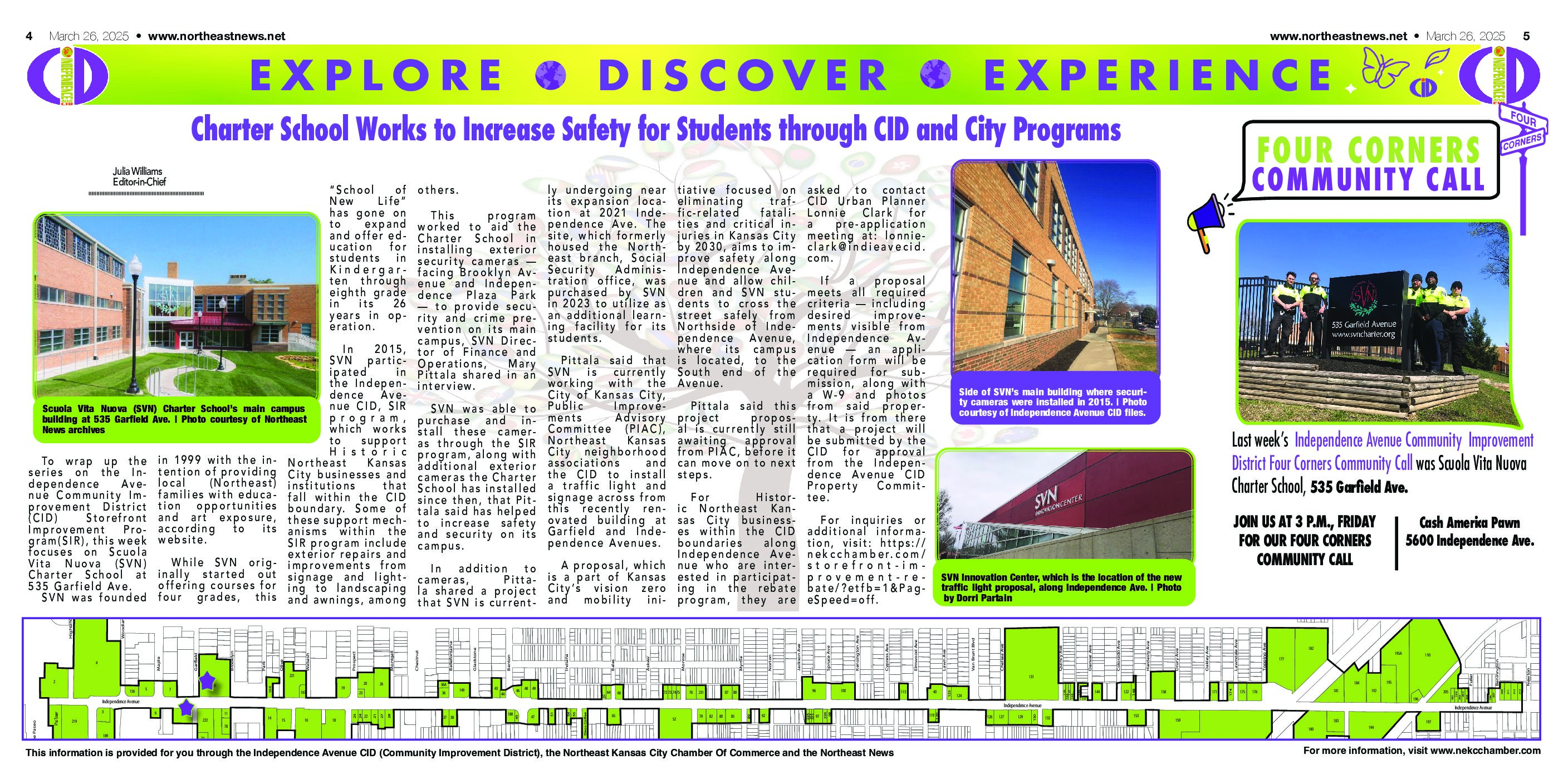Northeast News
February 10, 2017
KANSAS CITY, Missouri – Mayor Sly James and City Manager Troy Schulte submitted a $1.59 billion 2017-2018 budget to the City Council on Thursday, February 9 that includes a 4.6%, $19 million increase in the Public Safety budget, which supports Fire and Police services.
A transmittal letter written to members of City Council by Mayor James and Schulte explains that the additional public safety spending reflects the directives within the Adopted 2017-2022 Citywide Business Plan. The majority of the additional $19 million in public safety funding will support wage and benefit increases to fire and police employees, though James noted that the money will fund the addition of new recruits and technology, as well. In the proposed budget, public safety spending would represent 76% of the General Fund expenditures. Schulte said that the city’s goal was to create wage equity between the police and fire departments.
“We have tried to provide equivalent increases for police in order to treat them equitably,” said Schulte. “That drove those costs.”
The Police Department budget would see an $8.3 million increase if the 2017-2018 budget is approved as submitted. Of that, $7.7 million would pay for wage and benefit increases, including step increases. During the budget meeting on Feb. 9, Mayor James cautioned against automatically expecting an increased police presence throughout the city as a result of the budget increase.
“I don’t want to get out in front of this and talk about more police officers being out on the streets, because that may or may not happen,” said James.
The submitted budget also proposes an $11 million increase in Fire Department funding – an uptick of 7.1% over the current year. The vast majority – an expected $10.4 million – will go towards wages and benefits, as dictated by the collective bargaining agreement reached between the City and the department. The submitted budget includes a $2.3 million increase in funding for Fire Department overtime, a point highlighted by 1st District Councilman Scott Wagner during the budget rollout.
“There is a sizable and significant chunk related to firefighter overtime,” said Wagner. “In fact, the reason why we’re in a hiring freeze after the second quarter this year is because of that.”
After the meeting, Wagner expounded upon his comment regarding Fire Department overtime, which he says the City has struggled to correctly budget for in recent years.
“For example, last year we had budgeted about $6 million for firefighter overtime. At the end of that fiscal year it was actually at $12 million, which means that we have to then at the end of the year try to reconcile all of that,” said Wagner. “Cuts that were unexpected have to happen in order to make up for that.”
Wagner added that he hopes an ongoing audit into Fire Department overtime will help the City wrestle with what he called an “elusive” budgeting conundrum. While he acknowledged that changes with the department – such as closing fire houses and combining the Fire Department with Emergency Medical Services (EMS) several years back – have contributed to the struggles with budgeting overtime pay, Wagner said that he was eager to get a handle on the Fire Department’s overtime budget moving forward. He noted that the audit is expected to be completed within the next couple of months.
“Even with the growing number of people who are cross-trained, we still have that overtime number going up,” said Wagner. “There are some reasons for that to have historically occurred; now we’re trying to answer the question, ‘Is there a reason for that trajectory to continue?'”
To help offset the increased public safety funding, the 2017-2018 budget proposes the reduction of roughly 30 mostly vacant non-public safety positions. Finance and Governance is projected to see a 2.2% decrease in funding, which includes a decrease of 14.5 positions ranging from facility maintenance to the City Auditor’s office. Schulte added that there are no new initiatives planned in the budget, and that departments outside of public safety will merely seek to maintain existing services during the fiscal year.
“We didn’t do anything new because it would have added resources that we didn’t have,” Schulte said. “Our HR department and our Finance department are basically half the size they were a few years ago.”
The $1.59 billion budget represents a 4% increase over the 2016-2017 fiscal year budget. The 2017-2018 budget projects an increase of Governmental Activities revenues of 1.7%, or $16.4 million. According to the transmittal letter issued by James and Schulte, the majority of that projected growth will come in the form of increased earnings taxes, the largest revenue generator for the city.
The 2017-2018 budget includes some notable items for residents of the Historic Northeast. If approved, the budget will continue to support debt service payments for the $10 million dangerous building demolition program, which has already been utilized to tear down several blighted homes in the Northeast, as well as the former Manchester School off of Truman Road. The submitted budget also includes $458,000 for debt payments on Phase I improvement at the Kansas City Museum. Those funds would come from the Museum Levy. Also of note, the Water Services Cost of Service Task Force has recommended a 1.5% rate increase for water and a 9.5% rate increase for sewer in fiscal year 2017-2018. According to the transmittal letter, those recommended increases are actually less than prior year increases of 3% for water and 13% for sewer.
Public hearings regarding the proposed budget will begin on Saturday, Feb. 18, with a meeting from 10:00 a.m. until noon at the Mohart Multipurpose Center (3200 Wayne). Public hearings have also been scheduled on Saturday, Feb. 25 at Woodneath Library (8900 NE Flintock Rd.) and on Saturday, March 4 at Southeast Community Center (4201 E. 63rd St.). The City Council’s Finance and Governance Committee will begin its budget deliberations on Wednesday March 1, and in subsequent meetings scheduled for March 8 and March 22. In the interim, Kansas City residents can try their own hands at managing the budget by testing the City’s Balancing Act program at http://kansas-city-mo.abalancingact.com/.
A full copy of the budget can be downloaded through the City’s website.




















